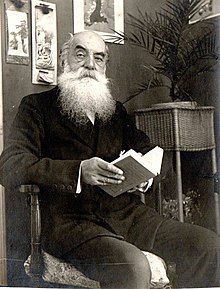
Giuseppe Mazzini was an Italian politician, journalist, and activist for the unification of Italy (Risorgimento) and spearhead of the Italian revolutionary movement. His efforts helped bring about the independent and unified Italy in place of the several separate states, many dominated by foreign powers, that existed until the 19th century. An Italian nationalist in the historical radical tradition and a proponent of a republicanism of social-democratic inspiration, Mazzini helped define the modern European movement for popular democracy in a republican state.

The unification of Italy, also known as the Risorgimento, was the 19th-century political and social movement that in 1861 resulted in the consolidation of various states of the Italian Peninsula and its outlying isles into a single state, the Kingdom of Italy. Inspired by the rebellions in the 1820s and 1830s against the outcome of the Congress of Vienna, the unification process was precipitated by the Revolutions of 1848, and reached completion in 1871 after the capture of Rome and its designation as the capital of the Kingdom of Italy.

Cremona is a city and comune in northern Italy, situated in Lombardy, on the left bank of the Po river in the middle of the Pianura Padana. It is the capital of the province of Cremona and the seat of the local city and province governments. The city of Cremona is especially noted for its musical history and traditions, including some of the earliest and most renowned luthiers, such as Giuseppe Guarneri, Antonio Stradivari, Francesco Rugeri, Vincenzo Rugeri, and several members of the Amati family.

Young Italy was an Italian political movement founded in 1831 by Giuseppe Mazzini. After a few months of leaving Italy, in June 1831, Mazzini wrote a letter to King Charles Albert of Sardinia, in which he asked him to unite Italy and lead the nation. A month later, convinced that his demands did not reach the king, he founded the movement in Marseille. It would then spread out to other nations across Europe. The movement's goal was to create a united Italian republic through promoting a general insurrection in the Italian reactionary states and in the lands occupied by the Austrian Empire. Mazzini's belief was that a popular uprising would create a unified Italy. The slogan that defined the movement's aim was "Union, Strength, and Liberty". The phrase could be found in the tricolor Italian flag, which represented the country's unity.
Arcangelo Ghisleri was an Italian geographer, writer, and Socialist politician.
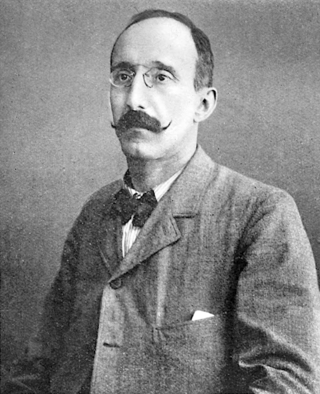
Leonida Bissolati was a leading exponent of the Italian socialist movement at the turn of the 19th century.
Antonio Novasconi (1798–1867) was an Italian prelate who became bishop of Cremona.
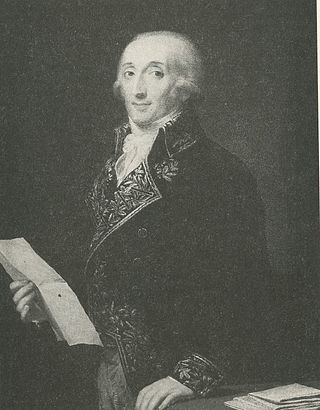
Francesco Melzi d'Eril, Duke of Lodi, Count of Magenta was an Italian politician and patriot, serving as vice-president of the Napoleonic Italian Republic (1802–1805). He was a consistent supporter of the Italian unification ideals that would lead to the Italian Risorgimento shortly after his death.

Osvaldo Bignami was an Italian painter.
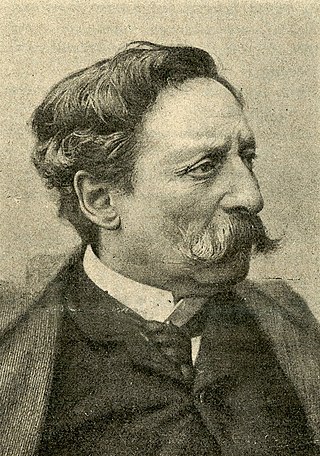
Sebastiano De Albertis was an Italian painter.
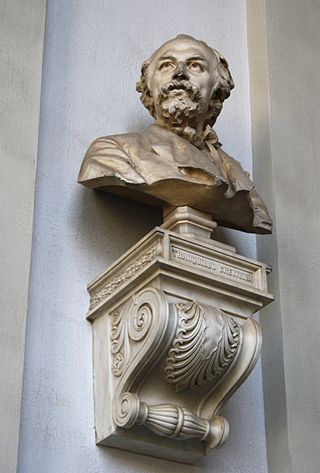
Tranquillo Cremona was an Italian painter.

Italian irredentism in Switzerland was a political movement that promoted the unification to Italy of the Italian-speaking areas of Switzerland during the Risorgimento.

Vespasiano Bignami (1841–1929) was an Italian painter, art critic, and caricaturist. He belonged to the Scapigliatura movement, and helped found La Famiglia Artistica.
Tito Zanardelli (1848–?) was an Italian journalist and anarchist. At first a proponent of revolution, later he became more moderate and advocated legal means to achieve the goals of the workers. He then retired from politics and spent many years in Belgium as a professor of mnemonics and a prolific author on philological subjects.
Osvaldo Gnocchi-Viani was an Italian journalist and a member of the First International. Later he entered mainstream democratic politics as a Socialist. He is known for his work in introducing chambers of labor into Italy.

La Plebe was an Italian newspaper that was published in Lodi from 1868 to 1875, then in Milan from 1875 to 1883. The editor was Enrico Bignami.
Freemasonry in Italy dates to the first half of the eighteenth century. Its success largely depended on the lack of enthusiasm with which Papal bans on the order were enforced in the various states. After the end of the Napoleonic regime, Freemasonry was suppressed in most of the peninsula. The start of the unification process in 1859 saw a revival in Freemasonry. Giuseppe Garibaldi, a leader of Italian unification, was an active Mason and a keen supporter of the craft. In the 1920s, Freemasonry was again suppressed under Italian fascism but revived again after the fall of Benito Mussolini. Into the 21st century, Italy contains a wide variety of Masonic observances, regular, liberal, male, female and mixed.

Giulietta Pezzi was an Italian writer and journalist whose work included poetry, four novels, and a five-act play. Born and educated in Milan, she was a devoted follower of Mazzini and active in the Italian republican and unification movements. In her later years she wrote for several newspapers and dedicated herself to the establishment of free public schools in Italy based on Mazzini's educational philosophy. She died in the city of her birth at the age of 71. During her lifetime several art songs were dedicated to her, including Bellini's "Vaga luna, che inargenti".
Francesco Ignazio Scodnik born in Kanal on 23 July 1804, died in Milan on 7 November 1877, was an Italian and Austrian Army Officer.
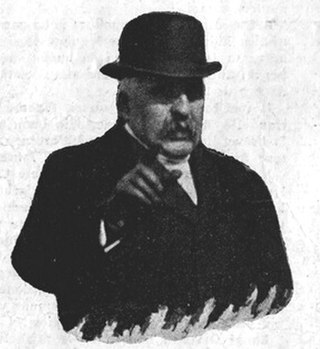
Eugenio Chiesa was an Italian accountant who found a job with a toy factory. He worked his way up through the ranks and, when the opportunity arose, acquired the business and became very rich. By that time he had also entered politics. As a young man he had been greatly influenced by the writings of Mazzini: he remained a committed Risorgimento-republican throughout his life. His long political career was also marked by several high-profile anti-corruption campaigns. Between 1904 and 1926 he served as a member of the Chamber of Deputies. After 1922 he emerged as an uncompromising opponent of Fascism. In June 1924 he was among the first members of parliament openly to accuse Mussolini in connection with the (presumed) murder of Matteotti a couple of weeks earlier. Eugenio Chiesa ended his life in exile.
